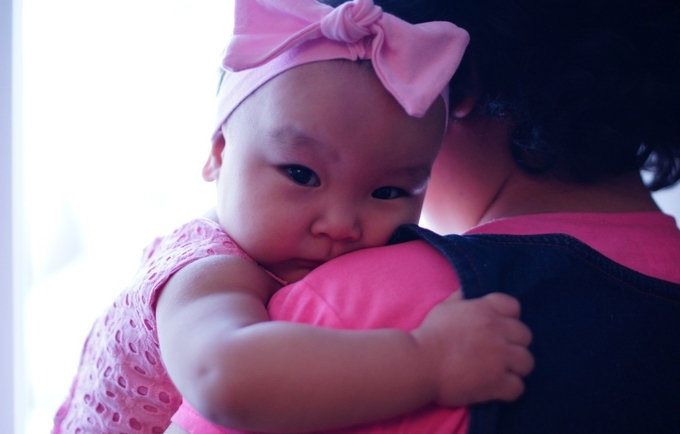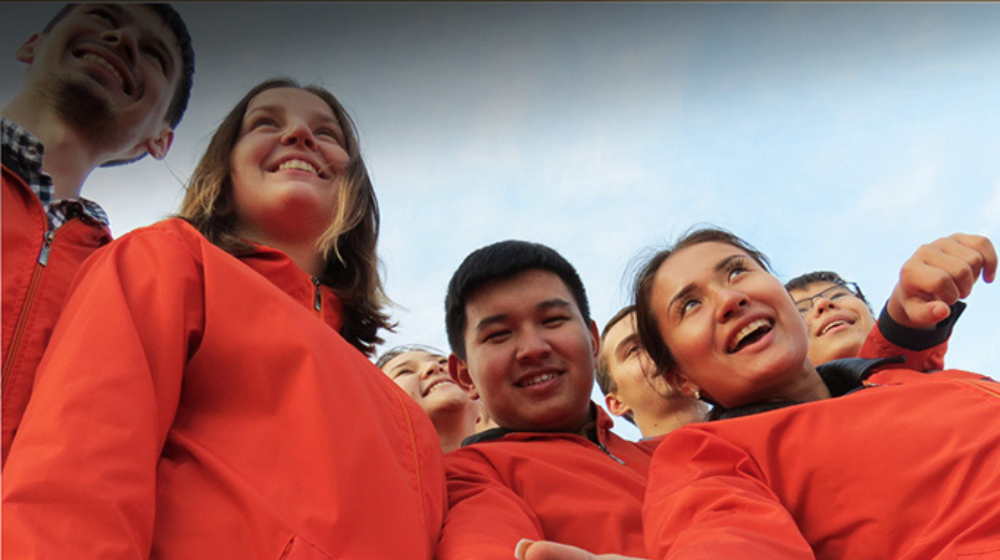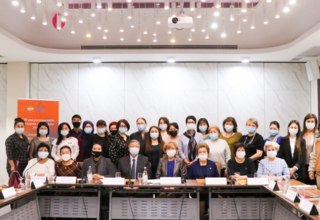Azhar (name changed) was 17 when she came to “Mother’s Home” in Nur-Sultan determined to abandon her daughter.
“They would put the baby in my arms and I would throw her back on the bed, - Azhar says. – If my daughter cried at night I would lock myself in the bathroom and wouldn’t come out. I didn’t want to hear her cry. I was depressed”.
At the school year-end ceremony when Azhar was finishing her 9th form, her friends told her that she had gained a lot of weight.
“I knew myself that I was becoming chubby. But I didn’t know what was going on. I had a frequent stomachache,” says Azhar.
Her parents were divorced and her mother had to work a lot to support the family. Azhar wanted to help her mum and went to work at a car wash service. One of her new co-workers said that Azhar should do a pregnancy test.
“I was eight months into pregnancy when I found out I was expecting. My friends decided to take me to the hospital but no one wanted to accept me. Eventually, in one of the clinics, they said they would accept me if I told my mum about it all, - she says. – “Or else we’ll throw you out to give birth in the street,” they said”.
After Azhar gave birth to a girl she wanted to leave the baby in the hospital. Later on after a series of talks with psychologists and doctors the young woman decided to go and live in “Mother’s Home”.
“The average age of a girl coming to this Home is 24. The youngest mother was 14, - says Executive director of “Ana Ui” (“Mother’s Home) foundation Baliya Akimbekova. – We have analyzed our database spanning 2015 to 2019 and found out that the majority of girls come to us because of financial difficulties. Among other reasons are difficult situations in the family, requests from relatives to abandon a child born out of wedlock or a young mother wanting to leave her baby due to the child’s ill health”.
What are the social and psychological characteristics of a woman living in “Mother’s Home’?
“Our research shows that it’s usually a woman under 30 who was raised in a big family with many children and had issues in her relationships with the parents. Typically, it’s a woman with vocational training, without a permanent place of employment and without a stable source of income and therefore in a financially precarious situation. Unfortunately, it’s very likely that such a woman was a victim of physical or emotional violence and suffered from her family’s pressure, usually from the parents”, - says Baliya Akimbekova.
There are girls who couldn’t identify early signs of pregnancy in a timely manner or who didn’t know at all how to postpone it, like Azhar.
“Mother’s Home” is a charitable project of a public foundation, which has been operating since 2013 with an aim to reduce the number of children that have to live in children’s homes. Its mission is to prevent the abandonment of a child by a mother and ensuring that a baby stays in their own family.
According to sociological surveys, there are many young men and women like Azhar in Kazakhstan. Almost a third of people surveyed don’t use contraceptives. Having said that, relatively young groups of people in Kazakhstan say that they need more information about contraceptives. This need is especially noticeable among those aged 15 to 19. A third of people in this age group are sexually active.
Who should talk with teenagers about sex?
Surveys show that people in Kazakhstan think that families should be responsible for their children’s sexuality education. Yet this is where a paradox is created – the topic of sex is a taboo in families in Kazakhstan. The reason for that isn’t only shame and fear of adults
“On the one hand, parents recognize their responsibility to bring up a healthy and decent person; on the other hand, many parents don’t know themselves how to speak correctly on this topic with their daughter or a son. In other words, adults don’t’ have enough knowledge themselves, - said Dina Teltayeva from UNFPA Kazakhstan. – Moreover, a lot of parents tend to limit their “talks” about sexuality to judgements on whether something is bad or good, they tend to judge sexuality from the standpoint of morality. However, it’s important to realize that such one-sided talks don’t inform teenagers about how they can protect themselves from sexually transmitted infections or how to delay a pregnancy”.
When a person can plan their family, they can plan the birth of a child when they are ready for it. It may be financial or emotional readiness, such as a stable income, a place to live in, an ability to give your child an opportunity for a decent life and many other factors. Naturally, teenagers cannot be ready to parenthood. This is why when a young girl falls pregnant it should be seen not as a choice, but as a result of a lack of choice.
Family planning includes information and methods that help people decide whether to have children, when and how many.
«One of the efficient ways to get prepared for family life and protect the reproductive health of children and youth is comprehensive sexuality education in schools. Such education aims to form morality, expand knowledge on family, its functions, gender psychology and gender equality. It helps have a respectful attitude to family and family values and parenthood. In these classes teenagers learn about changes in their psychology and in their bodies; about a healthy lifestyle and reproductive health, including preventing an unintended pregnancy, suicides, risks of sexually transmitted infections, including HIV. It conveys the knowledge that safe sex requires the use of contraceptives and access to medical services. These knowledge and skills empowers teenagers to make a choice for themselves and for their health, to postpone their first sex until they are fully ready for it,” says Luvob Dorozhkina, developer and teacher of a pilot course on comprehensive sexuality education.
“In fact, “Mother’s Home” helps deal with the effects of a difficult situation. We need to educate young people on topics of sexuality education and reproductive health. We are currently working on it. Our task is to reduce the number of people coming to our crisis centre,” said Baliya Akimbekova.
Over six years of our Foundation’s work 96.3 % of girls who lived in “Mother’s Home” have left this house with their babies.
“We understand that the Home is a safety outlet for girls who are in a very difficult situation, who don’t know where to go, - said Baliya Akimbekova. – We also realize that measures should be in the places that could help teenagers avoid having to make such a difficult choice at all when they are still not ready for it.”




